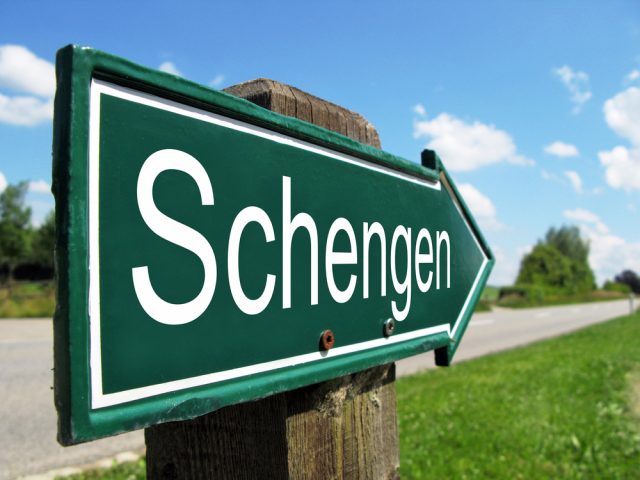
The entry of Romania and Bulgaria into Schengen, 17 years after their accession to the European Union, is not a gift offered by Western Europe (Germany, the Netherlands or Austria, the countries that have opposed accession in the past), it is not a victory for the political class in the two Eastern European countries. The full entry of Romania and Bulgaria into Schengen, as of January the 1st, 2025, is a reparation for an injustice that has cost the citizens and the economy of the two countries dearly. Romania and Bulgaria gained nothing on the 12th of December. They received a right denied to them, on trumped up grounds, more than a decade ago. A decade which can be characterized by huge economic losses, stagnating investments and a burden on the shoulders of all Romanian and Bulgarian citizens who have been deprived of the benefits of free movement within the European Union. Over the years, Austria, the Netherlands, Germany and other states which have blocked this process (citing various reasons, the most common of which was illegal migration) have damaged both Bulgaria and Romania. And yes, the damage caused must be assumed and repaired. Romania and Bulgaria belong to Europe, they belong to the European Union, but a European Union of equal nations, not one which decides at its discretion who deserves to be respected or not. As I mentioned earlier, Romania and Bulgaria will be part of Schengen from the 1st of January 2025, but the wound caused by those who have delayed this right will take a long time to heal.
The decision to lift Schengen land border checks for Romania and Bulgaria was the first item on the agenda of the EU Justice and Home Affairs (JHA) Council on Thursday, the 12th of December. The draft decision, which was unilaterally approved by all EU ambassadors at a meeting at the end of November, stipulated that checks on identity documents and goods will no longer be carried out at the EU’s internal land borders, which will be included in the free movement area from the 1st of January 2025, namely at the Greek-Bulgarian, Bulgarian-Romanian and Romanian-Hungarian border crossings.
The main beneficiaries of this historic decision are cars and individuals. This long-awaited change will allow Romanian and Bulgarian citizens to travel abroad in their personal cars without wasting time at border crossings. It will also make it easier for those working or studying abroad to return home. Joining the free movement area also brings significant economic benefits. In the case of cargo trucks, experts claim that no immediate improvements will be felt as a result of the fact that operations ranging from weighing, license and cargo checks, health and environmental examinations, as well as inspection of trucks for illegal migrants will be carried out at the crossing points. For an initial period of at least six months, Art. 25a (4) and (5) of the Schengen Borders Code will be applied in order to mitigate a potential change in migratory patterns that could occur as an immediate consequence of the abolition of land border controls and to prevent any serious threat to public order or internal security.
“Accession to the Schengen area has the effect of lifting controls between the internal borders of Schengen Member States fully applying the Schengen acquis, creating a single external border where controls are carried out according to a clear set of rules on visas, migration, asylum, as well as measures relating to police, judicial or customs cooperation. For citizens, the effect is that they can travel within the country without being subject to border controls,” notes the Schengen Romania website of the Ministry of Interior.
Romania and Bulgaria have undertaken these random checks as part of the negotiations with Austria. These random controls will be exactly as they are currently applied between Hungary and Austria or between Germany and Austria. Statistics show that in 2023 more than 25 million citizens and more than 11 million cars will have crossed Romania’s borders with Bulgaria and Hungary.
Temporary maintenance of controls – benefits for citizens and the economy
Although Romania will have full rights in the Schengen area from the first day of 2025, land border controls at the land borders between Romania and Hungary and Romania and Bulgaria will remain active for at least six months. This measure agreed at the JHA meeting is aimed at managing possible changes in migration flows and preventing threats to European public security, according to a joint declaration signed by Austria, Romania, Bulgaria and the Hungarian presidency of the EU Council.
Accession by land, after the two countries initially joined Schengen by sea and air, will abolish internal border controls at the internal borders of Member States that fully apply the Schengen area rules, forming a common external border where checks are carried out according to well-defined rules. This will simplify travel, whether by air, road, rail or sea, eliminating waiting times for passengers and freight carriers. Goods will move freely, saving time and resources for economic operators. Travel between Schengen countries will be similar to domestic travel. Land border crossing points will be abolished and citizens will be able to move from one country to another anytime, anywhere, carrying only a valid identity document. However, border checks will be carried out only randomly on the basis of risk analysis, similar to the way the Hungarian-Austrian border is currently managed.

Romania and Bulgaria’s accession to Schengen will undoubtedly bring significant benefits: reduced travel times (less pollution because there will no longer be kilometer-long truck queues at the borders), savings for economic operators and better connectivity for citizens. However, there is also a risk of increased criminality, such as people trafficking and illegal migration. The Schengen Information System, which allows cooperation between member countries’ authorities, will be used to combat these phenomena. Created in 1985, the Schengen area, comprising 27 countries and more than 420 million people, is the world’s largest area of free movement. Romania and Bulgaria will join the area, joining 23 other EU countries and the European Free Trade Association. Schengen facilitates daily travel for millions of people working, studying or visiting family in other member countries, helping to boost tourism and the economy. In addition, uniform rules in areas such as security and data protection provide citizens with a safe and well-regulated environment. According to the Council of the EU website, every day around 3.5 million citizens cross internal borders to work or study or to visit family and friends. Almost 1.7 million people live in one Schengen country and work in another. According to the same website of the European Council, 1.25 billion trips are made by European citizens within the Schengen area every year, with considerable benefits for tourism and the cultural sector.
Austria and the Netherlands have used the veto in the past
In terms of population, it is well known that Austria has the second largest group of residents after the Germans. Official data show that 150,000 Romanians are resident in Austria. The number of Romanians who were born in Romania and moved to Austria (to work or study) is much higher and difficult to establish because many of them did not renounce their Romanian citizenship and for those who wanted to have Austrian passports the condition imposed by Austria was to renounce their Romanian citizenship.
The government in Vienna reintroduced border controls with the Czech Republic until the 15th of October and with Slovenia and Hungary until the 11th of November. Similar measures have been taken in Germany, where the government has introduced constant checks at its borders after the AfD (Alternative for Germany), which has a similar anti-foreigner agenda, won the election in Thuringia and came second in Brandenburg and Saxony.
Despite the European Commission’s recommendation, Austria vetoed Schengen expansion two years ago. The reason given then was that the EU’s external border is not well protected in Romania and Bulgaria against illegal immigration. This excuse is not backed up by concrete data to support the Austrian hypothesis that migrants cross Romania and Bulgaria to reach Western Europe. The percentage of migrants who have crossed the two eastern European states to reach the west is significantly lower compared to the “classic” routes through Serbia-Hungary-Austria or those including the Mediterranean crossing to Spain, Italy, Croatia. Austrian officials have expressed their intention to lift the veto (used repeatedly in recent years) and last year only the Schengen sea and air restrictions for Bulgaria and Romania were lifted. On the 9th of December, Austria announced that it had fully dropped its opposition to Romania and Bulgaria’s full Schengen membership, the last hurdle for the two Eastern European countries after a wait of more than 17 years.
The decision to accept the two Balkan states required the consensus of all Schengen member countries. After Austria gave up its opposition, it was the Netherlands’ turn the other day when the Dutch Party for Freedom (Partij voor de Vrijheid – PVV) tabled a resolution in The Hague Parliament to block Bulgaria and Romania’s Schengen accession at the 12th hour. The Netherlands officially gave the green light for the full admission of Bulgaria and Romania after the parliamentary motion was rejected on the 11th and at the EU JHA (Justice and Home Affairs) Council meeting in Brussels on the 12th of December, Romania and Bulgaria were accepted into the Schengen area as of January the 1st, 2025.



 Subscribe
Subscribe